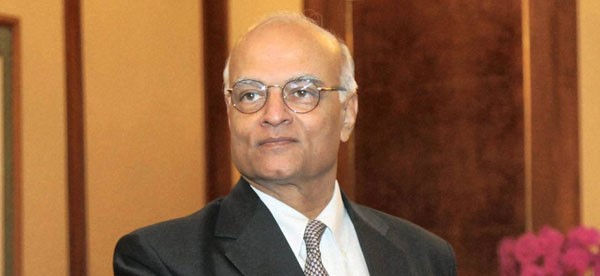Is it India Vs China?
February 19, 2018 | Expert Insights

Former Foreign Secretary Shivshankar Menon has predicted that there are likely to be more stand-offs between India and China. However, he noted that the two countries can still pursue discussions on matters while still maintaining a strategic distance. Menon was part of a panel organized by The Hindu where he was joined by former Pakistan ambassador to US Husain Haqqani and writer Andrew Small in the discussion.
Background
India’s contemporary relationship with China began in 1950. Between 1960 and 1987, India and China have been involved in three major military conflicts. A bilateral relationship has since been established but both nations have often been pitted against one another as they are two of the fastest growing economies in the world. In June 2017, a skirmish broke out between Indian and Chinese troops at the Doklam plateau, an area that is a disputed territory between Bhutan (an Indian ally) and China. Later, in August 2017, following a report of 15 Chinese soldiers crossing into Indian territory, the two sides took to throwing stones at one another at Pangong Lake in Ladakh.
Analysis
Former Foreign Secretary Shivshankar Menon was among the experts present at the conference organized by The Hindu called The Huddle.; a panellist of a session titled, ‘Does it have to be India vs China?’
Menon spoke about the recent stand-off between the two countries and spoke in-depth about Sino-India ties. "Most commentaries miss the basic point that like previous such crises whether it was Chumar where we had face-offs, we always managed to disengage,” he noted. However, he did concede that there might be other similar stand-offs between the two countries in the near future. "We do have cases which both sides consider on their side of the line. So we will have face-offs, we will have future cases, but it is not that we do not know how to handle it and we see a common interest in handling it peacefully.”
He stated that India’s relative power in the past five decades has improved significantly when compared to other nations from the same region. He also noted that China’s is an economic power but when compared to the United States, it is still not a military power. However, the equation between India and China is not a “T-20” match.
He said, “China needs the global market. India's external merchandise trade has jumped from 18% to 40% of the GDP since 1991, with focus on eastern trade in the South China Sea. It is therefore about periphery and not competition. India has new friends too in South Korea, Japan, Vietnam, etc. India will co-operate when she can and compete at other places with China. It will be more than just bilateral interplay.” He said that even though border issues between India and China will continue to persist, the two countries would continue discussions on other matters. Meanwhile, India ought to focus on its own strengths and make it a priority to create a robust nation.
Haqqani spoke about India, Pakistan and China. He said, “Pakistan has cast their lot with China and has thought of India as the eternal enemy. India does not understand the long term game of the Chinese. India does not want to fight, but if there is competition, China outspends India 2.5 times in defence. India needs a 50-year plan as well.” He added that India must change its outlook, stating, “India's short-sightedness is its weakness. The fact remains, China has muscle and it is willing to flex it under Xi Jinping. Pak is just a pawn used to keep India at bay. It is time for India to change its approach. India must change from its non-alignment outlook, where they believe everybody is nice. What if everybody is not nice? What will you do then?”
Assessment
Our assessment is that India and China are caught in a strategic game of geopolitical chess for influence in Asia. However, the ties between the two countries do not necessarily have to be acrimonious. They can cooperate when the need arises and try and counter the other when the situation necessitates it.








Comments